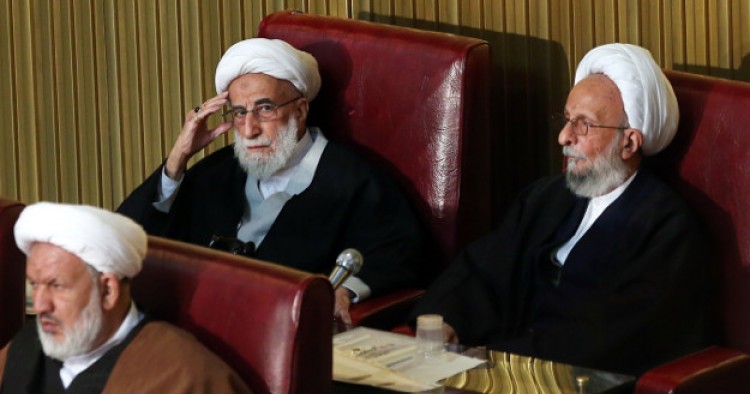News Brief: A top Iranian cleric has openly questioned the legitimacy and authority of elected officials in the Islamic Republic. “We don’t have any narration [a precedent in Shiite traditions] that says obeying a person who has come to power through a majority of people’s votes is compulsory,” opined Ayatollah Mesbah Yazdi, the head of Imam Khomeini Organization for Learning and Research in the holy Iranian city of Qom. “Yes, when the Supreme Leader appoints an individual, it is obligatory to obey him, he added, emphasizing that obeying elected officials not appointed by the Supreme Leader is tantamount to “obeying the Satan.”
Comment:
Yazdi is an influential politician and cleric in Iran and served as the head of the chairman of the Assembly of Experts, a powerful body responsible for electing the country’s Supreme Leader and supervising his activities.
Iranian leaders often portray the Islamic Republic as a symbol of democracy in the region. But Yazdi’s remark is another reminder that the country’s clerical establishment does not believe in the very fundamentals of democracy and that “election” in Iran is largely a symbolic event rather than a manifestation of true democracy.
Iran’s Supreme Leader and the largely unelected Guardian Council handpick presidential candidates and disqualify anyone not deemed loyal to the regime. But regardless of whom the voters elect, it is largely the Supreme Leader and the powerful Revolutionary Guards that design and implement the Islamic Republic’s key domestic and foreign policies.
Read daily news briefs and longer analyses at the IranObserved project.
The Middle East Institute (MEI) is an independent, non-partisan, non-for-profit, educational organization. It does not engage in advocacy and its scholars’ opinions are their own. MEI welcomes financial donations, but retains sole editorial control over its work and its publications reflect only the authors’ views. For a listing of MEI donors, please click here.













